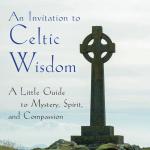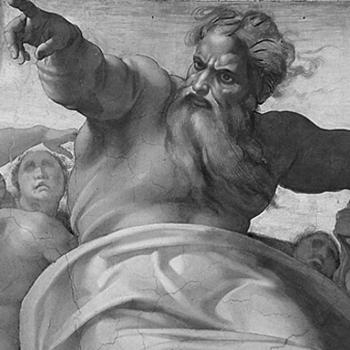This week was a rough one for the Christian contemplative community. We lost two major authors: Eugene Peterson and Thomas Keating. Peterson was the author of books like A Long Obedience in the Same Direction: Discipleship in an Instant Society and The Contemplative Pastor, while Keating is known for titles like Intimacy with God and Open Mind, Open Heart.
Eugene H. Peterson was born on November 6, 1932 and died October 22, 2018. A Presbyterian pastor and Biblical scholar, he was a poet and the author of over thirty books. He is perhaps best known for The Message, a paraphrase translation of the Bible that seeks to retain the earthy and streetwise immediacy of the text in its original languages.

A graduate of Seattle Pacific University, New York Theological Seminary, and Johns Hopkins University, he was the pastor of Christ Our King Presbyterian Church in Maryland for 29 years. He then taught at Regent College in Vancouver, before retiring to Montana.
Although he was a scholar and an academic, his books were imbued with a meaningful and contemplative spirituality. This is particularly evident in titles like Earth and Altar: the Community of Prayer in a Self-Bound Society and Christ Plays in Ten Thousand Places: A Conversation in Spiritual Theology. Many of Peterson’s books explore the spirituality of the Psalms — such an essential part of monastic prayer, that often seems to be forgotten in many circles of contemporary Christianity.
But while he will probably be remembered chiefly for The Message, it is his writing as a whole that really reveals his heart for an authentic spirituality in our time.
 Thomas Keating, probably the best known and most influential Trappist monk since Thomas Merton, was born on March 7, 1923, He died at St. Joseph’s Abbey in Spencer, Massachusetts on the evening of October 25, 2018.
Thomas Keating, probably the best known and most influential Trappist monk since Thomas Merton, was born on March 7, 1923, He died at St. Joseph’s Abbey in Spencer, Massachusetts on the evening of October 25, 2018.
At the age of twenty Keating entered Our Lady of the Valley Monastery in Rhode Island in January, 1944. After a fire destroyed much of the monastery in 1950, the community relocated to Spencer, Massachusetts, where they established St. Joseph’s Abbey.
In 1958 Keating was sent to Snowmass, Colorado, where he was appointed superior of the newly founded St. Benedict’s Monastery. Several years later he returned to Spencer as the community’s abbot, a position he held for twenty years. He then returned to Snowmass, where he remained until shortly before his death.
It was during Keating’s tenure as abbot of Spencer that many Trappist monks, following the lead of Thomas Merton (who had died in 1968), began exploring the ways in which Christian mysticism and eastern spirituality — especially Zen Buddhism and transcendental meditation — represent similar approaches to interior growth and development.
A wonderful book — now out of print but well worth tracking down — called The Silent Dialogue: Zen Letters to a Trappist Monk, recounts the correspondence between Keating and David Hackett, a young American who traveled to Japan to explore Christian-Zen interspirituality.
At that time, Keating was among a number of monks learning about Zen practice — but also, like many others, was concerned about affirming what is unique about the Christian heritage of meditation and contemplation. Eventually Keating was one of several monks, including M. Basil Pennington and William Meninger, who developed the centering prayer method of Christian meditation.
Inspired by Merton but also historical figures like the Desert Fathers and Mothers, John Cassian, and the anonymous author of The Cloud of Unknowing, centering prayer borrows techniques of meditation from eastern sources (including zazen and transcendental meditation) but anchors these techniques in a Christian understanding of prayer as relationship with God.
Although centering prayer has its critics (usually people who are uncomfortable with its similarity to non-Christian practices), it has become one of the most widely-practiced forms of Christian silent prayer, especially among Catholics and mainline Protestants.
To support the growing community of centering prayer practitioners, in 1984 Keating co-founded Contemplative Outreach, which is now an international organization/network of teachers and practitioners of this form of prayer.
He also was active in interreligious initiatives, such as the Snowmass Interreligious Conference, the Temple of Understanding, and Monastic Interreligious Dialogue.
Keating wrote many books, including Invitation to Love: The Way of Christian Contemplation, The Mystery of Christ: The Liturgy as Spiritual Experience, The Heart of the World: An Introduction to Contemplative Christianity and Divine Therapy and Addiction. A collection of The Homilies of Thomas Keating is available on the Kindle. He also released several audio recordings through Sounds True, including Contemplative Prayer: Traditional Christian Meditations for Opening to Divine Union, and many video recordings of his are in circulation through Contemplative Outreach.
Rest in the Silence, Pastor Eugene and Father Thomas. We will miss you.
Enjoy reading this blog?
Click here to become a patron.














